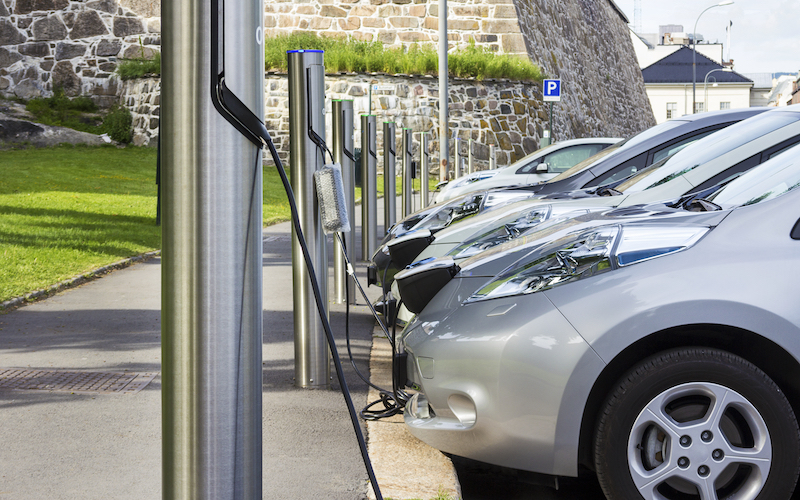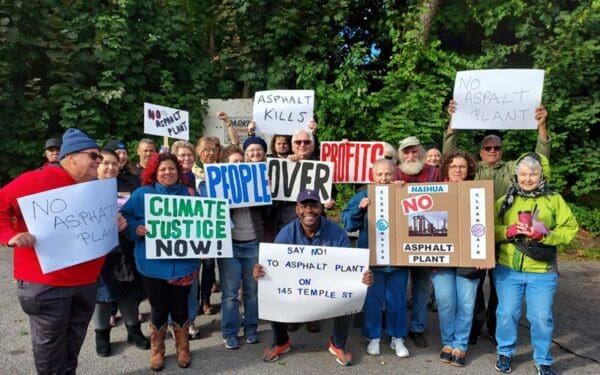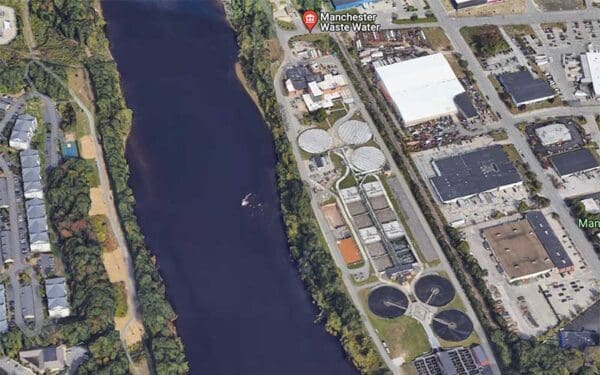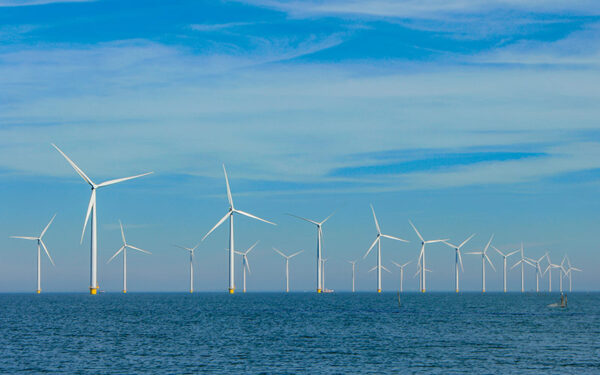
Maine needs both these standards to cut air and climate pollution. Photo: Shutterstock.
The Problem
Fossil fuel-powered transportation is the largest source of climate-damaging emissions in Maine, hurting our health and the environment. If we want to slow the climate crisis and meet the state’s emissions targets, we must slash the pollution spewing from tailpipes in our cars, SUVs, vans, buses, trucks, and tractor-trailers.
Where Things Stand
For much of 2023, CLF and our partners have been urging Maine’s government to adopt two critical regulations that will cut air and climate pollution from our transportation sector by boosting electric vehicle sales. These are the clean cars and clean trucks standards. The two standards require that an increasing percentage of vehicles sold in the state be clean (electric or hybrid) each year. The goal is to bring more clean vehicles to Maine, providing families and businesses with better access to more fossil fuel-free transportation options.
In October, Maine’s Board of Environmental Protection met to deliberate on the two regulations. Most of the seven-member board favored adoption of the clean cars standard in a straw poll. In contrast, the Board did not support the clean trucks standard.
This isn’t the Board’s final word on these regulations. They will meet again on December 21 to formally vote on both standards. However, we expect the outcome to be the same as in the straw poll. Here’s what these stances mean for Maine.
Progress: Clean Cars Standard
The Advanced Clean Cars II regulation focuses on the vehicles most of us drive every day. This standard requires automakers each year to sell an increasing percentage of new, clean cars – both electric vehicles and plug-in hybrids. As proposed in Maine, the standard would end in 2032 with a mandate that 80% of all new cars, SUVs, and pickup trucks offered for sale be clean.
The Advanced Clean Cars II has already been adopted in twelve states around the country. However, in most of those states, the standard goes all the way to 2035 when 100% of the new vehicles manufacturers sell must be clean. Adopting that full standard in Maine would save even more lives by further cutting the air pollution sending our loved ones to the hospital.
The Advanced Clean Cars II standard will also result in $17 billion in benefits on the table. These include savings on healthcare from reduced respiratory and cardiac illnesses, and reduced car operation and maintenance costs which tend to be cheaper than for typical gas-guzzlers.
Bad News: No Movement on Clean Trucks Standard
The Board is also considering the Advanced Clean Trucks standard. This standard targets medium- and heavy-duty vehicles like buses, box trucks, tractor-trailers, and vans. Like the Advanced Clean Cars II, this standard would require automakers to sell more fossil fuel-free vehicles over time. However, it would max out at between 40% and 75% clean by 2035, depending on vehicle size.
In its deliberations, Board members expressed concerns about Maine’s preparedness for the clean trucks standard. They referenced pilot projects and plans that are not yet complete and worried about charging infrastructure and the electricity grid. While concluding in their straw poll discussions that the state isn’t ready for the rule, the Board seemed comfortable falling back on federal regulations to clean up Maine’s air and hit our climate targets. We disagree with the Board on this preliminary opinion – Maine is ready for the Advanced Clean Trucks standard now.
- Months ago, the Efficiency Maine Trust, the Department of Transportation, and the Governor’s Energy Office presented to the Board their extensive efforts (already underway) to support electric vehicles. Their presentation showed how Maine is already bolstering charging infrastructure and will continue doing so, expanding and improving our electricity grid, and otherwise ensuring the state’s readiness for a clean transportation sector. They expressed no concerns about the proposed clean trucks standard.
Of course, a successful transition to clean trucks will require more than what’s in place today. But Maine’s electricity grid and charging networks will grow alongside the availability of electric trucks. The Board’s role is to ensure clean vehicles are available to Mainers (just as it’s the role of other state agencies to ensure adequate clean vehicle infrastructure will be in place – which they told the Board they are doing).
- The clean trucks standard would gradually ramp up to only a 40-75% clean vehicle requirement over a decade (with the lower target for harder-to-electrify types of vehicles). So, industries that still need fossil-fuel powered trucks because they can’t electrify would continue to be able to access them. Maine’s heritage industries that simply cannot make the switch to clean vehicles would not be pressured to do so.
- Taking no action to slash climate-damaging emissions from Maine’s medium- and heavy-duty vehicles really isn’t an option under Maine’s climate law, which mandates cuts in carbon emissions by 45% by 2030 and 80% by 2050. The state’s own Climate Action Plan calls for aggressive transportation electrification – including trucks, vans, and buses – to meet our climate targets. And the primary recommendation of the state’s Clean Transportation Roadmap is to adopt these standards.
Without the clean trucks standards, Maine is reliant on a not yet final federal standard that isn’t as bold and makes no guarantees that clean medium- and heavy-duty vehicles will come to the state. This isn’t enough to ensure we meet the mandatory climate law.
Next Steps
The Board is expected to make a formal decision on both standards on December 21. With the state’s Climate Action Plan’s revision coming, we’ll be working hard continuing to push the state to clean up our vehicles. After all, this isn’t just about cars and trucks – this is about air quality and a changing climate that is turning our lives upside down.




